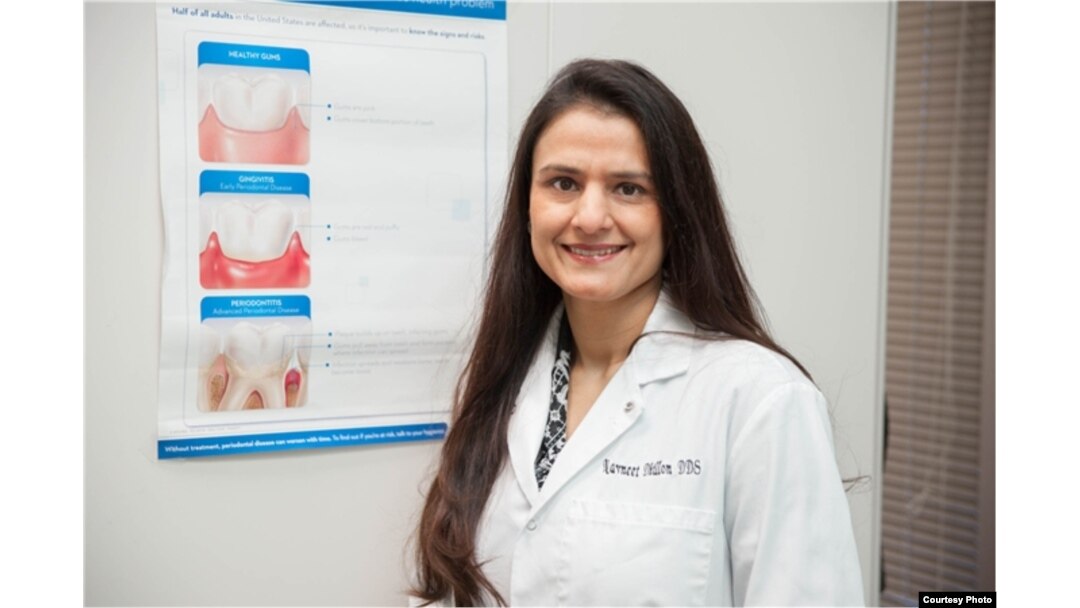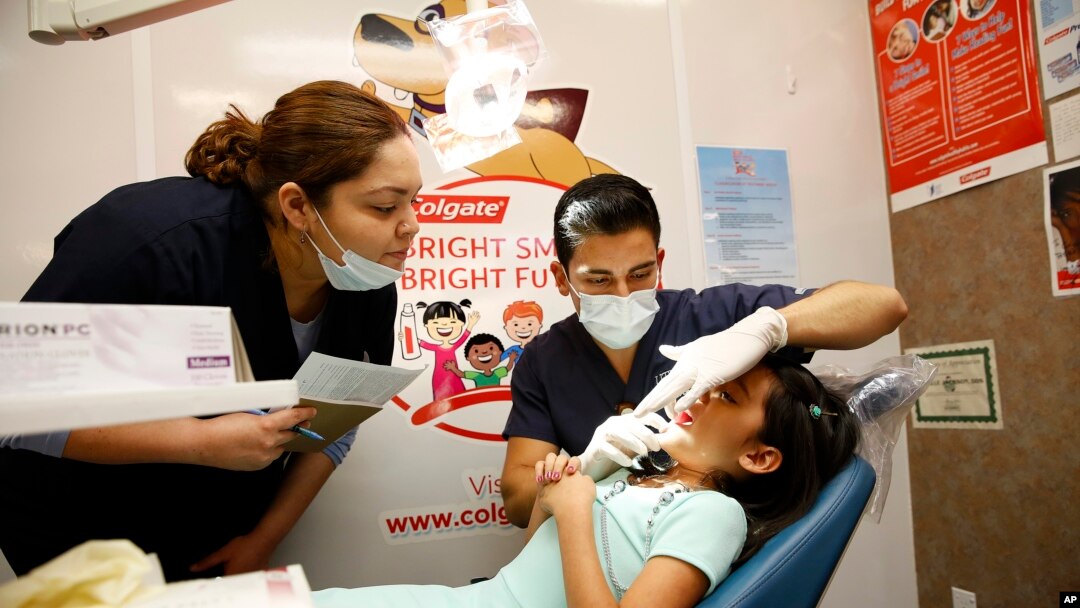A career in dental surgery in the United States is lucrative, but intense competition to get into American schools makes it a hard slog for international students, especially mothers.
The number of students competing for slots in dental schools is higher than the number of seats, says Indian Navneet Dhillon, who earned her bachelor's degree in dental surgery from an Indian school in 2001 before studying and graduating with a doctor of dental surgery (DDS) degree from the University of Southern California in 2008.
When Dhillon applied, there were 4,200 enrolees to American dental school selected from 7,200 applicants. In 2016, 12,000 students applied to U.S. dental schools; 6,100 were accepted. Of those, only 4 percent came from outside the U.S., according to the American Dental Education Association.
Every school seeks a diverse mix of students, making admission more challenging, according to Dhillon. More than half of the applicants in dental schools were Indians when she applied, putting them in competition with each other.

Indian Navneet Dhillon earned her bachelor's degree in dental surgery from an Indian school in 2001 before studying and graduating with a doctor of dental surgery (DDS) degree from the University of Southern California in 2008.
Dhillon initially came to North America from Punjab to study in Canada. However, seats were limited and the number of international students was high. The exams she took to be admitted in Canada turned out to be good practice for her exams to apply to U.S. dental schools, where she was accepted.
But once in school in California, she had to juggle her studies with family: Her husband and 2-year-old daughter remained in Canada. She traveled back and forth to see them.
"But it was kind of hard traveling back and forth every four weeks to see my family, so we decided to move them to U.S.," she said. Her husband, Rupinder — who had Canadian citizenship — could visit her for up to six months a year. The absences were shorter.
While Rupinder stayed home to take care of their daughter, Dhillon "slogged at the school till midnight."
The hard work paid off. After her graduation, she got a job in the U.S. on an H1B visa through her employer. She applied to become a permanent resident, and got it. Dr. Dhillon now practices in Virginia, outside Washington, D.C.
Pushpinder Kaur, who runs her own dental clinic in New Jersey, has a similar story. Kaur also first studied dental surgery at an Indian institution before graduating from New York University in 2002.
Pushpinder Kaur, who runs her own dental clinic in New Jersey, first studied dental surgery at an Indian institution before graduating from New York University in 2002.
"Since my husband, Navdeep, was [financially] established in the U.S., I could completely focus on my studies. His support meant a lot," Kaur said. However, since the couple had a one-month-old daughter, it was tough managing studies and taking care of the child. "It was difficult, but I could continue studying due to family support."
Both Dhillon and Kaur say studying in the U.S. brought them focus and maturity they didn't have in India.
"There is just no comparison. When we go to school in India, we are like 18, 19, and not very mature," Dhillon said. "We were not very focused. And we had the support of our parents, financially and psychologically."
But more independent in the U.S., "one attains maturity levels very quickly. One knows one has to get good grades and the graduate degree. One acquires in depth knowledge," Dhillon said.
Kaur say going to an American school gave her practice she wouldn't have gotten in India.
"When I was studying dental science in India, I only knew the theoretical part," Kaur said. "But I learned the procedures here. In fact, I gained lot of knowledge."
Dhillon agrees, and says a U.S. school gave her an edge.
"In the U.S., one learns every skill in the school," she said. "Thus, one gets better when one practices."
Dhillon offers advice for aspiring students.
"Be patient. Don't get demoralized if you don't make it to an American school in the first attempt," she said. "You will probably get it in next attempt."
Added Kaur: "Be focused and study practice tests for the board exams."
After taking exams and waiting for the results, take a position in dentistry, Dhillon said.
"It could be as a dental assistant, in a dental lab, or taking up continuous education courses. This will help you build your resume," she advised. "One can even volunteer for free dental clinics. If one does not have a work permit, then one can work as an observer.''
Kaur says that Indian students have a distinct advantage compared to other international students: their native English language skills.
Please comment here and visit us on Facebook, Twitter, Instagram and LinkedIn, thanks!


